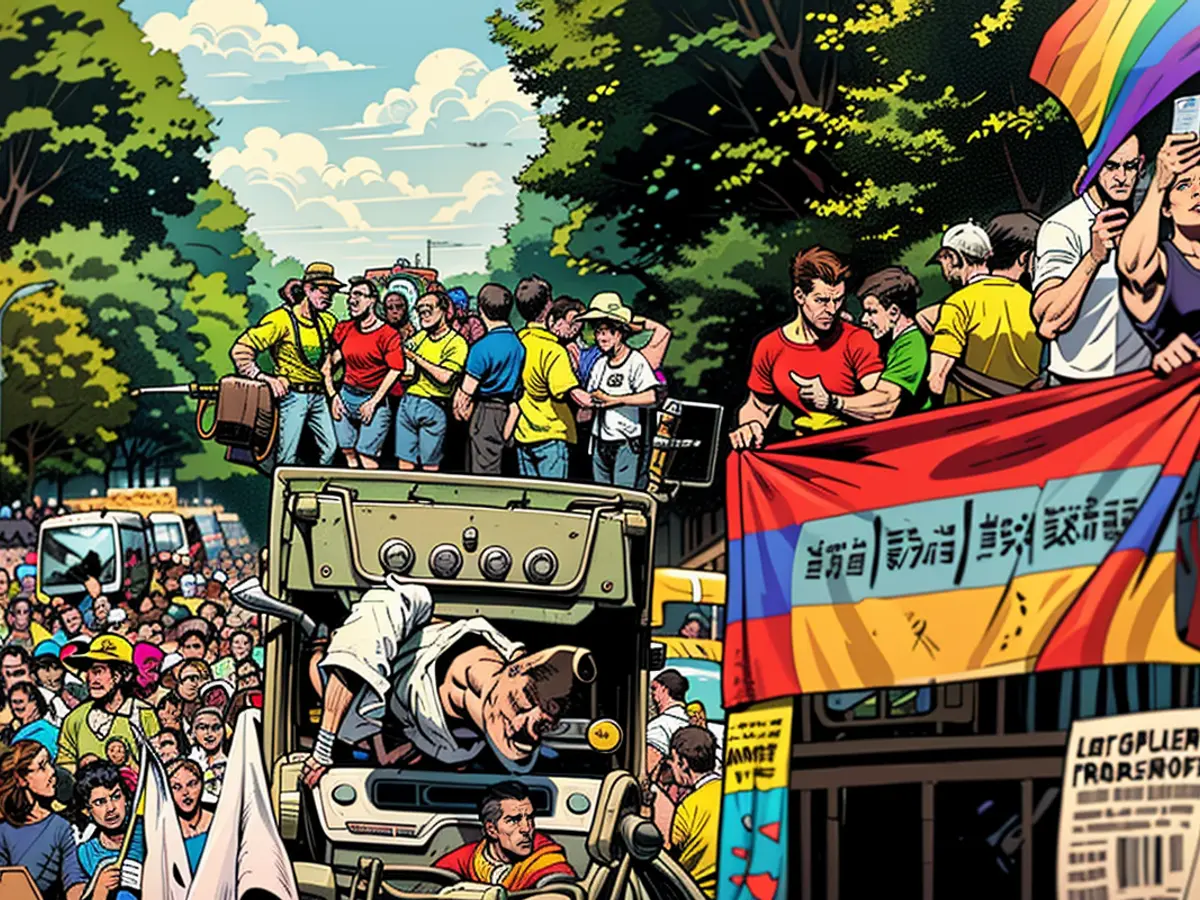CDU blocks constitutional amendment on sexual identity
The anchoring of the prohibition of discrimination based on sexual identity in the Basic Law is listed as a project in the coalition agreement of the Traffic Light. However, implementing this is difficult. The Bundestag faction of the Union considers the idea unnecessary. Union fraction manager Thorsten Frei told the Redaktionsnetzwerk Deutschland (RND), "Touching the fundamental rights catalog, the heart of our constitution, requires special reasons." He is fundamentally skeptical about a change in the Basic Law, but sees no reason for it since the discrimination protection based on sexual orientation is already implemented in Article 3.
Article 3 currently states: "No one may be disadvantaged or favored because of their sex, origin, race, language, homeland and origin, belief, religious or political opinions."
Over the weekend, hundreds of thousands demonstrated in Berlin for more rights for LGBTQI people during the Christopher Street Day. Singer Herbert Grönemeyer called for Article 3 to be amended with the addition, "that no one may be disadvantaged because of their sexual and gender identity." The singer urged the crowd, "We need perseverance and even more courage."
Some CDU-led state governments support the project
The anchoring of sexual identity as a discrimination criterion in the Basic Law is also a project in the coalition agreement of the Traffic Light Coalition. Implementing this is difficult: For a constitutional amendment, a two-thirds majority in the Bundestag and Bundesrat is required. Some CDU-led state governments have signaled support for this, such as Berlin. The Berlin government, led by Kai Wegner, has announced a Bundesrat initiative for the amendment of Article 3.
Deputy SPD fraction leader Dirk Wiese told RND that the constitutional amendment is a goal of the Traffic Light Coalition. "Unfortunately, the CDU/CSU Bundestag faction has rejected the talks on this matter. It's therefore good that some CDU politicians from the states are taking a different position." However, the leadership does not take these politicians seriously. "The political and societal regression since the end of the Merkel years is unfortunately continuing unchecked at the top of the Union."
"Long overdue"
FDP Vice-Fraction Leader Konstantin Kuhle also pressed for a constitutional amendment. This would be "an important sign for political and societal acceptance," he told RND. "A constitutional amendment is long overdue at this point." Union fraction manager Thorsten Frei countered in an interview with RND that discrimination based on sexual identity is already prohibited through the Basic Law, the European Human Rights Commission, the European Charter of Fundamental Rights of the European Union, and the General Equal Treatment Act.
The Lesbian and Gay Association (LSVD) has repeatedly emphasized that homo- and bisexual men were deliberately excluded from Article 3,3 in 1949. Homosexuals in democratic post-war Germany were still subjected to persecution by the repealed Paragraph 175 in the Criminal Code until 1994.
- Despite the support from some CDU-led state governments, such as Berlin, the Bundestag faction of the Union remains skeptical about the necessity of altering the Basic Law to include sexual identity as a discrimination criterion, as proposed by the Traffic Coalition's project.
- The FDP's Vice-Fraction Leader, Konstantin Kuhle, regarded a constitutional amendment to include protection against discrimination based on sexual identity as "long overdue," arguing that it would serve as an essential indicator of political and societal acceptance for LGBTQI individuals.
- The Traffic Coalition's coalition agreement includes the anchoring of sexual identity as a discrimination criterion in the Basic Law, but implementing this change will require overcoming the significant hurdle of obtaining a two-thirds majority in both the Bundestag and Bundesrat.
- During the Christopher Street Day demonstrations in Berlin, LGBTQI rights advocate and singer Herbert Grönemeyer called upon the crowd to push for an amendment to Article 3 of the Basic Law, advocating for the inclusion of protection against discrimination based on sexual and gender identity.








